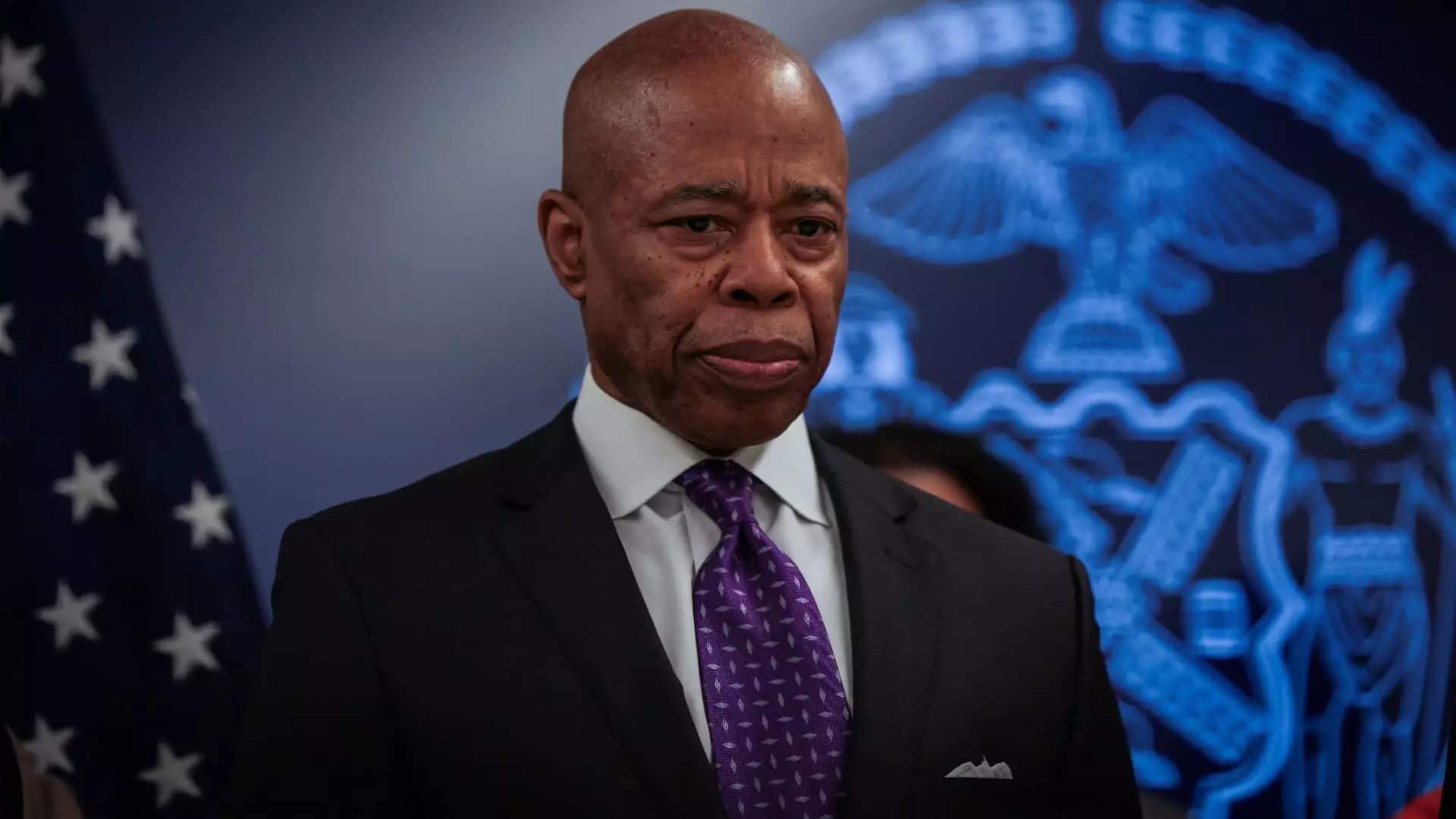The political arena in New York City has recently been shaken by a corruption case involving Mayor Eric Adams. The developments in the judicial proceedings reveal a complex web of legal, political, and ethical dilemmas, spotlighting the intricate relationship between law enforcement and politics in America. This article aims to dissect the major elements of this controversy, the legal ramifications, and its broader implications for governance in one of the United States’ most significant cities.
At the heart of this controversy are allegations against Mayor Eric Adams, who was charged with accepting bribes and campaign donations from Turkish nationals in exchange for political favors. Since the charges were filed last September, Adams has maintained his innocence and pleaded not guilty. However, the recent actions by the Justice Department have added layers to the case that warrant closer scrutiny. In a move that some view as deeply controversial, U.S. District Judge Dale Ho decided to push back any immediate dismissal of the charges, although he has chosen to delay the trial indefinitely.
The Justice Department’s intervention came on February 14, when officials requested Judge Ho to dismiss the charges against Adams. This request followed the resignation of several prosecutors unwilling to comply with what many perceived as politically motivated directives issued by Acting Deputy Attorney General Emil Bove. As a Trump appointee, Bove’s involvement raises questions about the motivations behind the case’s potential dismissal, especially since it coincides with broader political maneuvering involving Adams and Trump’s immigration policies.
The interplay between Adams and the Trump administration is critical to understanding the broader context of the corruption allegations. Notably, Adams has been increasingly vocal in his support of certain Trump policies, leading to speculation about whether a quid pro quo arrangement could be in play. This speculation intensified when it was revealed that Adams allegedly proposed a deal: support for Trump’s stringent immigration policies in return for the dismissal of the charges against him.
This proposition has ignited a firestorm within the Democratic Party, prompting senior party officials to express concern that any dismissal could render Adams beholden to Trump’s political maneuvering. The implications are significant; if a sitting mayor is perceived as compromised, the trust of constituents could be jeopardized, eroding the foundational principles of democratic governance.
The fallout from Bove’s order to dismiss the charges has generated turmoil within the Justice Department itself. Several prosecutors, led by Danielle Sassoon, resigned in protest rather than abide by what they viewed as a politicized order. This mass resignation underscores the moral and ethical dilemmas faced by those in public service: do they adhere to their ethical obligations and the law, or do they follow orders from politically appointed superiors?
In a letter opposing Bove’s directive, Sassoon articulated her belief that the ongoing case was not hindering Adams’s ability to serve but rather was a point of accountability for public officials. The chaos within the Justice Department is emblematic of a larger issue within American politics: the intersection of law, ethics, and political loyalty.
As the political pressure mounts on Mayor Adams amid these serious allegations, calls for resignation have echoed throughout New York. Despite the swirling controversy, state Governor Kathy Hochul has opted not to exercise her power to remove Adams, proposing instead to implement a system of oversight for the mayor’s office. This decision might reflect the nuanced nature of political accountability—it recognizes the importance of allowing an elected official to navigate their challenges while ensuring that checks and balances remain in place.
The corruption charges against Eric Adams and the subsequent political and legal maneuvers denote a turning point not only for the mayor himself but for the future of New York City’s governance. The unfolding of this case serves as a reminder of the fragility of political integrity in the face of pressure and ensures that it will remain in the spotlight as both legal and ethical questions linger over the proceedings. As New York City holds its breath, this scenario will likely evolve further, necessitating deeper examination and perhaps, new standards in political accountability.


Leave a Reply